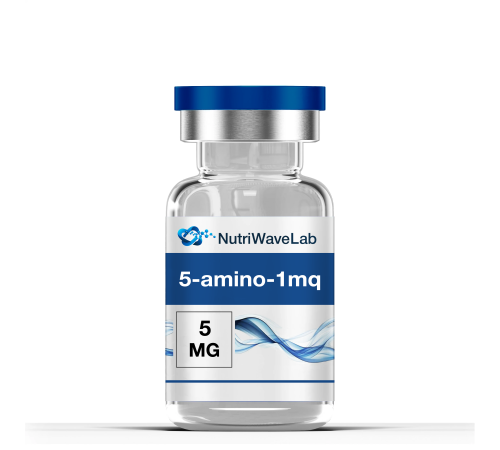
SIRT1 activation has profound anti-aging effects and impacts various cellular functions across the body. It helps mitigate the risk of numerous conditions, including diabetes, obesity, metabolic syndrome, atherosclerosis, cardiovascular diseases, as well as kidney, liver, and neurodegenerative diseases, and cancer. Studies have demonstrated that decreasing NNMT activity can lead to a reduction in fat cell size and fat deposits.
Additionally, 5-Amino-1MQ mimics the effects of caloric restriction by switching cells into a sirtuin mode of operation, where mitochondria optimize energy expenditure. This not only burns fat and improves metabolism but also enhances endurance and cardiovascular function. Remarkably, research involving mice has shown a 7% reduction in body mass over just 10 days without any changes to diet, underscoring the compound’s effectiveness in promoting weight loss and improving overall metabolic health.
- Molecular Formula: C₁₀H₁₁N₂⁺
- Molecular Weight: 159.21 g/mol
- Synonyms:
- SCHEMBL6403148
- CHEMBL4116828
- AKOS025269993
Applications:
- Weight loss
- Bodybuilding
- Metabolism (NNMT inhibitor)
- Cognitive function


5-Amino-1MQ Peptide Research
5-Amino-1MQ powder is a high-purity,
research-grade compound designed for lab use. It serves as a potent inhibitor
of the NNMT enzyme, which is crucial in managing energy metabolism and fat
storage. By blocking NNMT, 5-Amino-1MQ can influence cell methylation and alter
metabolic pathways related to obesity and type 2 diabetes.
Targeting NNMT with 5-Amino 1MQ
5-Amino 1MQ specifically targets and
inhibits NNMT, an enzyme active mainly in fatty tissues and linked to obesity
and type 2 diabetes. By inhibiting NNMT, 5-Amino 1MQ disrupts its role in
metabolism and energy balance, offering a unique opportunity to deeply study
these processes.
Weight Loss and Obesity Management
Research has demonstrated that inhibiting
NNMT with agents like 5-Amino-1MQ can reduce fat mass and improve insulin
resistance. This is particularly relevant for obesity studies, as NNMT levels
are typically higher in the fat tissue of obese individuals. Therefore,
blocking NNMT with 5-Amino-1MQ might be a new method for tackling weight loss.
Metabolic Regulation
5-Amino-1MQ has been linked to beneficial
changes in metabolism, such as increased insulin sensitivity and modified lipid
metabolism. These findings are supported by metabolomic studies that have
identified specific lipid compounds and amino acid analogues that respond to
weight loss interventions.
NNMT Inhibition and Microbiome Changes
Studies suggest that inhibiting NNMT can
lead to a distinct microbiome profile, important because the gut microbiota
plays a role in the development of metabolic diseases. Experiments on mice with
diet-induced obesity showed that reducing calorie intake combined with NNMT
inhibition results in a unique microbiome composition, suggesting potential
uses for 5-Amino-1MQ in microbiota-related metabolic research.
Enhanced Understanding of Metabolism
Using 5-Amino-1MQ in research helps provide deeper insights into metabolic pathways involved in obesity and related conditions, aiding in the development of targeted therapies and personalized medicine for metabolic disorders.
There are no reviews for this product.
No questions about this product.
